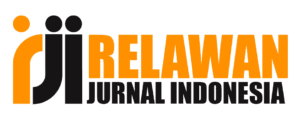Analysis of Muhammadiyah Political Texts and Networks in the Indonesian Context of Governance and Local Politics
Abstract
This study analyzes Muhammadiyah's political texts and networks within the context of Indonesian governance and local politics using a literature review and text analysis. Data were sourced from the Scopus database, comprising 77 documents from 1995 to 2024, analyzed using the Prisma method, and visualized through InfraNodus. The findings reveal Muhammadiyah's significant role in various political aspects, including political Islam, intellectual thought, and election dynamics. Network analysis and word cloud visualizations uncover complex relationships between key concepts, highlighting Muhammadiyah's influence in shaping political discourse and Muslim identity in Indonesia. Practical implications include developing more effective and inclusive policies involving Muhammadiyah. Research limitations include data and analysis method constraints, while suggestions for future research involve incorporating additional data sources and mixed methods for deeper insights.
References
Abbe, A., Grouin, C., Zweigenbaum, P., & Falissard, B. (2016). Text mining applications in psychiatry: A systematic literature review. International Journal of Methods in Psychiatric Research, 25(2), 86–100. https://doi.org/10.1002/mpr.1481
Adiwilaga, R., Mustofa, M. U., & Rahman, M. R. T. (2019). Quo vadis islamic populism? An electoral strategy. Central European Journal of International and Security Studies, 13(4), 432–453.
Al-Hamdi, R. (2013). Islam and politics: Political attitudes of the elites in Muhammadiyah 1998-2010. Indonesian Journal of Islam and Muslim Societies, 3(2), 267–290. https://doi.org/10.18326/ijims.v3i2.267-290
Al-Hamdi, R. (2023). Political Consciousness of Muhammadiyah: Historical Trajectories and Future. Studia Islamika, 29(3), 451–484. https://doi.org/10.36712/sdi.v29i3.15866
Arifianto, A. R. (2020). The State of Political Islam in Indonesia: The Historical Antecedent and Future Prospects. Asia Policy, 15(4), 111–132. https://doi.org/10.1353/ASP.2020.0059
Arifin, S., Mughni, S. A., & Nurhakim, M. (2022). The Idea of Progress: Meaning and Implications of Islam Berkemajuan in Muhammadiyah. Al-Jami’ah, 60(2), 547–584. https://doi.org/10.14421/AJIS.2022.602.547-584
Azca, M. N. (2024). A “Maverick Salafi Political Jihadist” in a Turbulent Period: A Biographical Study of Dr Fauzi. Politics and Governance, 12. https://doi.org/10.17645/pag.7984
Bakry, K., Asse, A., Syamsuddin, D., Salenda, K., & Shaari, R. (2020). Political Dynamics of Muhammadiyah and Its Relevance to the Concept of the State in Islam. Al-’Adalah, 17(2), 383–396. https://doi.org/10.24042/adalah.v17i2.6824
Barton, G., Yilmaz, I., & Morieson, N. (2021). Authoritarianism, democracy, islamic movements and contestations of islamic religious ideas in Indonesia. Religions, 12(8). https://doi.org/10.3390/rel12080641
Basya, M. H., & Hamka. (2023). Cultural capital, Islamism, and political distrust in Indonesian general election: an ethnicity-based community engaged in Islamic Defenders Front (FPI). Indonesian Journal of Islam and Muslim Societies, 13(2), 253–277. https://doi.org/10.18326/ijims.v13i2.253-277
Brown, G. (2019). Civic Islam: Muhammadiyah, NU and the Organisational Logic of Consensus-making in Indonesia. Asian Studies Review, 43(3), 397–414. https://doi.org/10.1080/10357823.2019.1626802
Candraningrum, D. (2023). Head Veiled Warriors, Khalifatullah Fil Ardl, and the Pandemic: Aisyiyah-Muhammadiyah Caring for the Planet. Studies in Interreligious Dialogue, 33(1), 81–102. https://doi.org/10.2143/SID.33.1.3292295
Gunawan, J. (2024). Artificial intelligence in healthcare administration: Topic modeling with InfraNodus. Journal of Healthcare Administration, 3(1), 1–8. https://doi.org/10.33546/joha.2288
Harsono, J., & Nasution, R. D. (2020). Political package: Movement of Muhammadiyah political elite in the election of 2019. International Journal of Innovation, Creativity and Change, 13(1), 531–542. https://www.scopus.com/inward/record.uri?eid=2-s2.0-85085176343&partnerID=40&md5=91c760ea9344cf0074e92596225dcc94
Hicks, J. (2012). The Missing Link: Explaining the Political Mobilisation of Islam in Indonesia. Journal of Contemporary Asia, 42(1), 39–66. https://doi.org/10.1080/00472336.2012.634640
Hidayah, N. (2020). Women’S Movement in the Framework of Modernist Muslims in Indonesia: Aisyiyah and Economic Empowerment. Hamdard Islamicus, 43(2), 1681–1691. https://doi.org/10.57144/hi.v43iSpecialIssue.218
Huda, M. S. (2019). The local construction of religious blasphemy in East Java. Journal of Indonesian Islam, 13(1), 96–114. https://doi.org/10.15642/JIIS.2019.13.1.96-114
Jamhari, & Testriono. (2021). The Roots of Indonesia’s Resilience Against Violent Extremism. Studia Islamika, 28(3), 517–545. https://doi.org/10.36712/sdi.v28i3.23956
Khoirudin, A., Baidhawy, Z., & Nor, M. R. M. (2020). Exploring muhammadiyah’s historical civilizational dimension of social reconstruction in Indonesia: Humanitarian and cosmopolitan approaches. Journal of Al-Tamaddun, 15(1), 183–197. https://doi.org/10.22452/JAT.vol15no1.13
Kurniawan, B. D., Efendi, D., Mahadika, A., Pahlevi, M. E. T., & Amrurobbi, A. A. (2023). Muhammadiyah and Religious Moderation: Response to Actions of Muhammadiyah to Prevent Modern Radicalism (Case Study of Leadership Period 2015 - 2021). Sociologia y Tecnociencia, 13(1), 102–123. https://doi.org/10.24197/st.1.2023.102-126
Kusmanto, H., Bahri, S., & Hassan, S. A. (2024). Examining electoral dynamics: The strategic role of Muhammadiyah and Al-Washliyah in the political landscape of North Sumatra. Journal of Infrastructure, Policy and Development, 8(8). https://doi.org/10.24294/jipd.v8i8.6387
Latief, H., & Nashir, H. (2020). Local Dynamics and Global Engagements of the Islamic Modernist Movement in Contemporary Indonesia: The Case of Muhammadiyah (2000-2020). Journal of Current Southeast Asian Affairs, 39(2), 290–309. https://doi.org/10.1177/1868103420910514
Lay, C. (2017). Political linkages between CSOs and parliament in Indonesia: a case study of political linkages in drafting the Aceh Governance Law. Asian Journal of Political Science, 25(1), 130–150. https://doi.org/10.1080/02185377.2017.1297243
Marwadi. (2021). Renewing the Thoughts of the Hijri Calendar of Muhammadiyah, Nahdlatul Ulama and Persatuan Islam and Its Implications for Realization of National Hijri Calendar. Al-Manahij: Jurnal Kajian Hukum Islam, 15(1), 19–36. https://doi.org/10.24090/mnh.v15i1.4870
Maryani, E., Janitra, P. A., & Ratmita, R. A. (2021). @Indonesiatanpafeminis.id as a Challenge of Feminist Movement in Virtual Space. Frontiers in Sociology, 6. https://doi.org/10.3389/fsoc.2021.668840
Menchik, J. (2019). Moderate Muslims and Democratic Breakdown in Indonesia. Asian Studies Review, 43(3), 415–433. https://doi.org/10.1080/10357823.2019.1627286
Millie, J., & Syarif, D. (2022). The Public Politics of Supplication in a Time of Disaster. Indonesia, 2022(113), 111–124. https://doi.org/10.1353/ind.2022.0006
Nashir, H., Jinan, M., & Setiaji, B. (2019). Muhammadiyah: The political behavior of modernist muslim elite in indonesia. Humanities and Social Sciences Reviews, 7(4), 837–844. https://doi.org/10.18510/hssr.2019.74111
Nashir, H., Qodir, Z., Nurmandi, A., Jubba, H., & Hidayati, M. (2019). Muhammadiyah’s moderation stance in the 2019 general election. Al-Jami’ah, 57(1), 1–24. https://doi.org/10.14421/ajis.2019.571.1-24
Qodir, Z., & Hefner, R. W. (2024). DEBUNKING THE MYTH OF ISLAMIC PARTIES Political Ideology and Electoral Contestation in Indonesia during the Lead-up to the 2024 Election. Journal of Indonesian Islam, 18(1), 180–205. https://doi.org/10.15642/JIIS.2024.18.1.180-205
Rasyidin, A. (2016). Islamic organizations in North Sumatra: The politics of initial establishment and later development. Journal of Indonesian Islam, 10(1), 63–88. https://doi.org/10.15642/JIIS.2016.10.1.63-88
Sadeghi Moghadam, M. R., Safari, H., & Yousefi, N. (2021). Clustering quality management models and methods: systematic literature review and text-mining analysis approach. Total Quality Management and Business Excellence, 32(3–4), 241–264. https://doi.org/10.1080/14783363.2018.1540927
Salahudin, Nurmandi, A., Jubba, H., Qodir, Z., Jainuri, & Paryanto. (2020). Islamic Political Polarisation on Social Media During the 2019 Presidential Election in Indonesia. Asian Affairs, 51(3), 656–671. https://doi.org/10.1080/03068374.2020.1812929
Sila, M. A. (2020). Revisiting Nu-Muhammadiyah in Indonesia: The accommodation of Islamic reformism in Bima. Indonesia and the Malay World, 48(142), 304–322. https://doi.org/10.1080/13639811.2020.1823150
Sukti, S., Warsito, T., Qodir, Z., & Jubba, H. (2022). Political Dynamics of Islamic Law in the Reform Era: A Study of the Response of Muhammadiyah Cadres in Central Kalimantan. Samarah, 6(2), 1022–1045. https://doi.org/10.22373/sjhk.v6i2.12415
Tursunkulova, I., de Castell, S., & Jenson, J. (2023). Exploring Infranodus: a Text Analysis Tool. 20th International Conference on Cognition and Exploratory Learning in Digital Age, CELDA 2023, 34–42. https://eric.ed.gov/?id=ED636402
Ul Haq, F. R., Hadna, A. H., Darwin, M., & Ikhwan, H. (2024). Dynamics of Covid-19 policy implementation in DKI Jakarta: study of the responses of Muhammadiyah members. Indonesian Journal of Islam and Muslim Societies, 14(1), 63–89. https://doi.org/10.18326/ijims.v14i1.63-89
Wahdini, M., Kamsi, & Jubba, H. (2024). Environmental Governance in Indonesia: Muhammadiyah’S Role, State Intervention, and Legal Practice Dynamics. Syariah: Jurnal Hukum Dan Pemikiran, 24(1), 189–205. https://doi.org/10.18592/sjhp.v24i1.12897
Wang, X., Chen, Y., Liu, Y., Yao, L., Estill, J., Bian, Z., Wu, T., Shang, H., Lee, M. S., Wei, D., Tian, J., Ma, B., Wang, Y., Tian, G., & Yang, K. (2019). Reporting items for systematic reviews and meta-analyses of acupuncture: The PRISMA for acupuncture checklist. BMC Complementary and Alternative Medicine, 19(1), 1–10. https://doi.org/10.1186/s12906-019-2624-3
Widigdo, M. S. A., & Awang Pawi, A. A. (2023). “Reason” of political and religious moderation in the book of Ghiyāth al-Umam by al-Juwaynī and its contemporary Southeast Asian context. Cogent Arts and Humanities, 10(1). https://doi.org/10.1080/23311983.2023.2223815
Copyright (c) 2025 Journal of Governance and Local Politics (JGLP)

This work is licensed under a Creative Commons Attribution-NonCommercial-NoDerivatives 4.0 International License.










